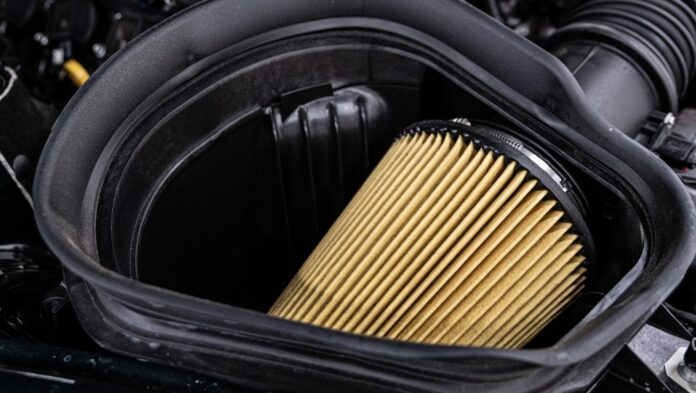
Many individuals often think about flashy add-ons or powerful engines when upgrading their vehicles. However, the secret to a vehicle’s longevity and performance often lies in one small but crucial component: the air filter. This article delves into air filters, uncovering why they are essential for a vehicle’s health and how they can elevate the driving experience.
Understanding Air Filters: More Than Just a Component
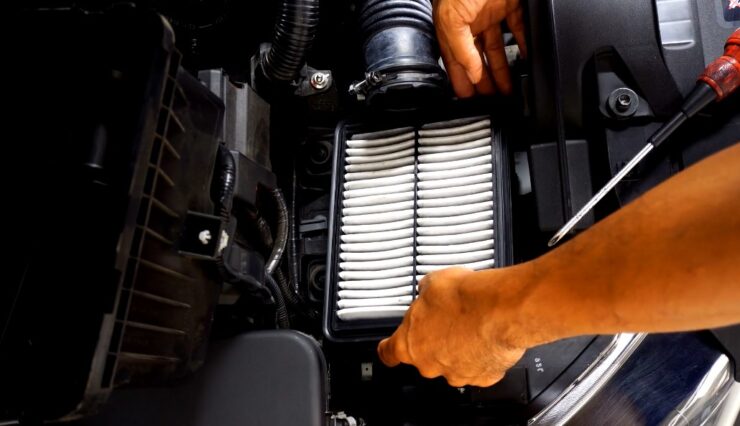
Air filters are not just another part of your vehicle; they are the engine’s lungs. They play a critical role in filtering out dust, pollen, and other airborne debris, ensuring the engine receives clean air for combustion. But why is this so important? Here’s the breakdown:
The Impact on Engine Health
A clean air filter enables optimal airflow to the engine, which is essential for maintaining fuel efficiency and performance. When an air filter gets clogged, it can lead to various issues, including decreased horsepower, increased fuel consumption, and even engine damage.
Enhancing Performance and Efficiency
According to some studies, a well-maintained air filter can improve acceleration by up to 11%. It ensures the engine gets the right air-to-fuel ratio, keeping it running smoothly and efficiently.
The Hidden Benefits of Upgrading Your Air Filter
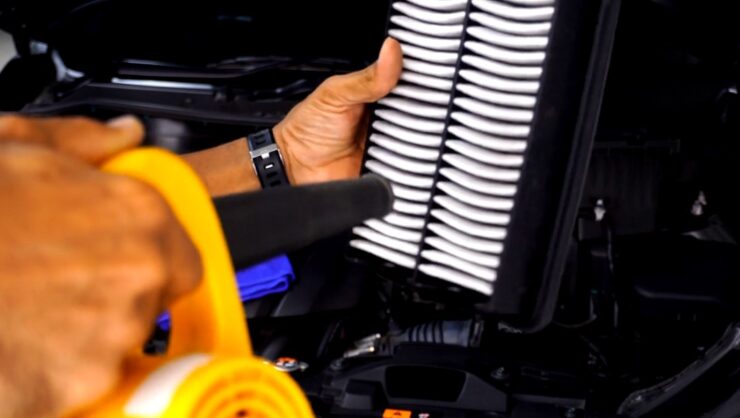
Upgrading the air filter can bring a myriad of benefits that go beyond the basic function of filtering air:
Boosting Fuel Economy
A clean air filter can significantly improve a vehicle’s fuel efficiency. This means rarer trips to the gas station and more money in your pocket.
Reducing Emissions
Vehicles with dirty air filters release more pollutants into the environment. By upgrading the air filter, you are improving the vehicle’s performance and contributing to a cleaner environment.
Prolonging Engine Life
Regularly changing or upgrading the air filter can increase the life of the engine by preventing abrasive particles from entering and causing wear and tear.
Choosing the Right Air Filter for Your Vehicle

Not all air filters are created equal. Here’s what individuals need to consider when choosing an air filter:
Types of Air Filters
- Paper Filters: The most common type, offering good filtration and usually at an affordable price.
- Foam Filters: Known for their high dust-holding capacity, ideal for dusty environments.
- Cotton Filters: These high-performance filters provide excellent airflow and are often washable and reusable.
What to Consider
- Compatibility: Ensure the filter fits the vehicle model.
- Quality: Opt for a filter that balances air flow and filtration.
- Driving Conditions: Consider the regular driving environment – city, highway, or off-road.
The Online Advantage: Buying Air Filters Made Easy
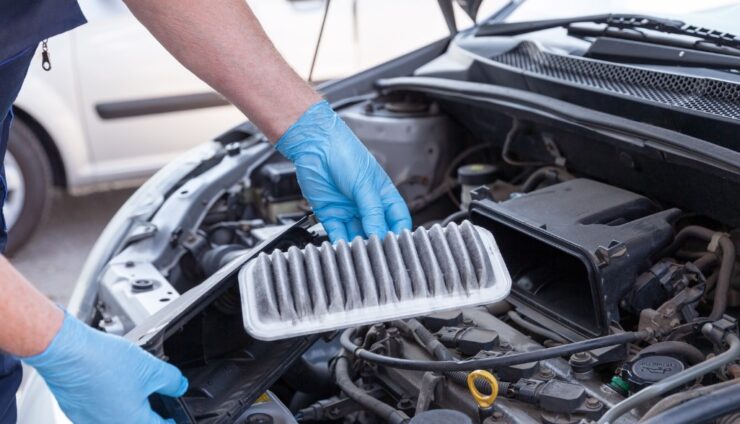
With the advent of e-commerce, buying air filters for a vehicle has never been easier. Here’s why individuals should consider purchasing them from Rolan Auto Parts Store or other reputable online shops.
Convenience at Your Fingertips
Shopping online allows individuals to easily compare different brands and prices, all from the comfort of their homes.
Access to Reviews and Expert Opinions
Online platforms often provide customer reviews and expert opinions, helping individuals make informed decisions.
Competitive Pricing and Deals
Online retailers often offer competitive pricing and exclusive deals, making it a cost-effective option.
Step-by-Step Guide to Replacing Your Air Filter
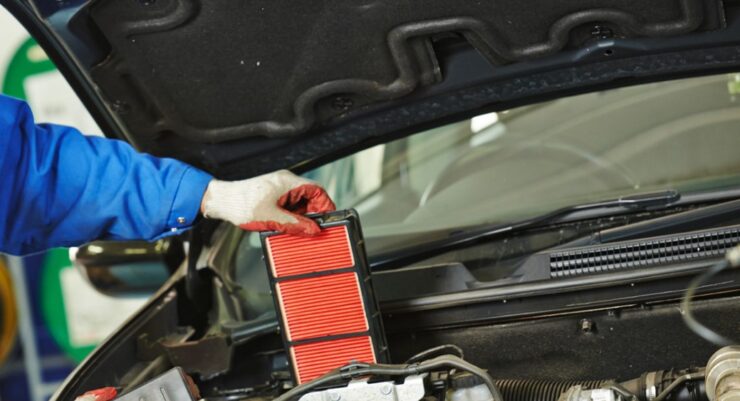
Replacing an air filter is a simple task that individuals can do themselves. Here’s a quick guide:
- Locate the Air Filter: This is usually found in a black plastic box in the engine bay.
- Remove the Old Filter: Open the box and remove the old filter.
- Clean the Air Filter Housing: Wipe out any debris inside the housing.
- Insert the New Filter: Place the new filter in the housing.
- Secure the Housing Box: Close the box securely.
Recommended Frequency for Air Filter Replacement:
Understanding when to replace your vehicle’s air filter is crucial for optimal engine performance and efficiency. While specific intervals can vary depending on driving conditions and manufacturer recommendations, a general guideline suggests changing the air filter every 12,000 to 15,000 miles or annually.
Regular maintenance checks can help determine if your air filter needs replacement sooner. Factors like driving in dusty environments or frequent stop-and-go city traffic may necessitate more frequent changes. Ignoring this crucial maintenance task can result in reduced fuel efficiency, diminished engine power, and potential damage to the engine over time.
Recognizing Signs of a Clogged Air Filter:
Recognizing the signs of a clogged or dirty air filter is essential for maintaining your vehicle’s performance. When an air filter becomes excessively dirty, it restricts airflow to the engine, impacting fuel efficiency and power output. Common signs of a clogged air filter include decreased acceleration, reduced fuel economy, unusual engine noises, and a noticeable decrease in engine power.
If you experience any of these symptoms, it’s advisable to inspect and potentially replace the air filter promptly. Ignoring these signs can lead to further engine issues and decreased overall vehicle performance.
Cleaning and Reusing Air Filters:
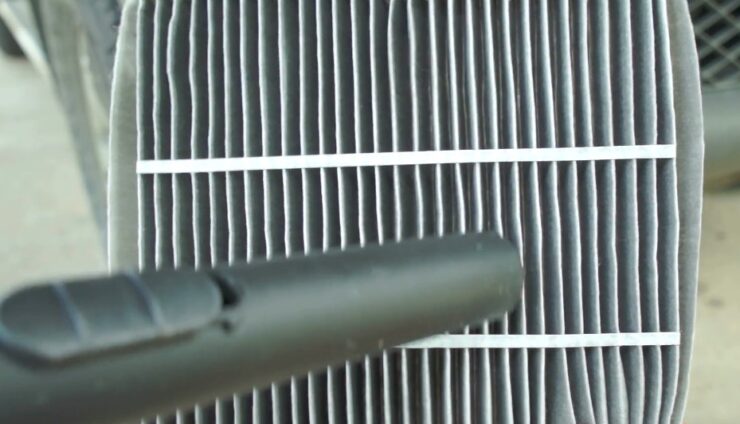
Certain types of air filters, such as foam or washable filters, can be cleaned and reused instead of being replaced outright. Cleaning and reusing air filters can be an environmentally friendly and cost-effective alternative. To clean an air filter, remove it from the vehicle and follow the manufacturer’s instructions for cleaning and drying.
Keep in mind that not all air filters are washable, so it’s essential to check the type of filter in your vehicle. Cleaning and reusing filters should be done carefully to ensure that they are thoroughly cleaned and dried before reinstalling them. Regular maintenance and cleaning of reusable filters can extend their lifespan and provide continued protection for your engine while reducing waste and costs associated with frequent replacements.
Conclusion
Upgrading and maintaining a vehicle’s air filter is a small change that can make a big difference. It’s an affordable way to enhance a car’s performance, efficiency, and lifespan. So next time individuals think about vehicle upgrades, remember to give air filters the attention they deserve – the vehicle will thank you for it.






